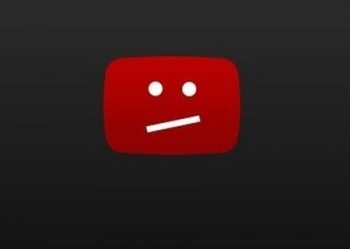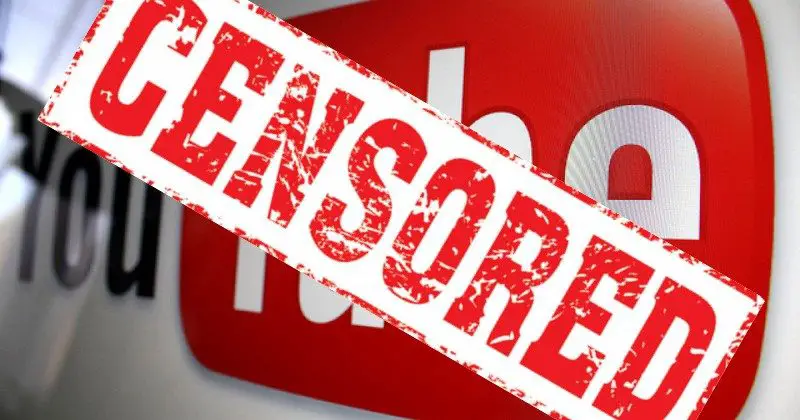August 19th, 2017
Contributing writer for Wake Up World
Last March, Google instructed its evaluators to flag pages returning “conspiracy theories” or “upsetting content” unless it was clear “the user is seeking an alternative viewpoint.” In typical double-speak language, Google’s guidelines leave much to be desired in clarity and specifics.
Apparently the search engine giant decided last spring that, in its war against “fake news”, not only would it revamp its guidelines for evaluators, it would also adjust its algorithms to block “offensive” sites, while promoting those of more “authoritative content.”
Around the same time, Google-owned YouTube also went through an overhaul. This time, to protect advertisers from their ads appearing on videos promoting “hateful, offensive and derogatory content” and “potentially objectionable” content.
[pro_ad_display_adzone id=”110028″]
While this may sound straightforward, there seems to be an elephant in the room that’s being overlooked: Who determines what’s “offensive, authoritative, derogatory or potentially objectionable”? Google? Advertisers? The site owners themselves? An individual who flags content?
As with any kind of censorship, once we begin questioning who is controlling information and for what purpose, we drop into a rabbit hole of complexity with no easy answers.
Censorship By a Single Corporate Entity — What Could Possibly Go Wrong?
“For people’s main way of finding articles about a topic to be run by a giant corporation creates an obvious potential for abuse.” ~ Richard Stallman, leader of the free software movement
When we consider the power Google wield’s in the realm of information technology, the scope is massive. Because of this, Google has an incredible responsibility in defending free speech and access to information. Be that as it may, it seems as though Google has chosen to err on the side of censorship — partly due to backlash from advertisers who didn’t agree with the content where their ads were running, and partly due to so-called ‘fake news’ that, some say, denied Hillary Clinton of her rightful presidency.
Interestingly, it appears Google is specifically targeting alternative media sites, regardless of if they lean to the left or right.
“While the update may be targeting specific site functions, there is evidence that this update is promoting only large mainstream news organizations,” said Eric Maas, a search engine optimization consultant based in the San Francisco Bay Area. “What I find problematic with this is that it appears that some sites have been targeted and others have not.”
As of August, numerous alternative media outlets have reported a drastic drop in traffic for their sites. Truthout — a non-profit news website with a focus on political, social and ecological topics — has seen a 35 percent plunge in its readership since the algorithm changes in April; Real News — a not-for-profit video news and documentary outlet, has seen a 37 percent drop; Common Dreams search traffic has declined by an alarming 50 percent.
“This is political censorship of the worst sort; it’s just an excuse to suppress political viewpoints,” says Robert Epstein, Psychology Today former editor-in-chief and expert on Google.
Pro-Trump pages are also being hit with the latest censorship sweep, but this time it’s with their YouTube channels over the last week. The same for left-leaning alternative media outlets. Thousands of videos spanning the political spectrum have been demonetized.
Matt Agorist of The Free Thought Project, asks:
“Imagine if you never came across alternative media that challenged your thought process and made you question the government. Imagine if you never ‘woke up’ to the atrocities committed by the state on a daily basis. Imagine where you’d be right now without that information. Now, imagine that information is snubbed out forever. Is that a world you want to live in?”
According to Google, content that is considered “not advertiser-friendly” includes, but is not limited to:
- Sexually suggestive content, including partial nudity and sexual humor.
- Violence, including display of serious injury and events related to violent extremism.
- Inappropriate language, including harassment, profanity and vulgar language.
- Promotion of drugs and regulated substances, including selling, use and abuse of such items.
- Controversial or sensitive subjects and events, including subjects related to war, political conflicts, natural disasters and tragedies, even if graphic imagery is not shown.
Unfortunately, it appears as if Google is throwing the baby out with bathwater, as many have complained their videos are not offensive and fall within the guidelines, and yet were demonetized anyway.
Philip DeFranco, whose YouTube channel covers current affairs and pop culture, discovered 12 of his videos have been demonitized. He is baffled as to how YouTube established these videos breached their guidelines.
“I appealed a bunch of videos, a lot of them got reinstated but one was denied,” he said. “I went through the tags there was nothing offensive. When I looked at the content, I did talk about potential drug abuse and how that could be a bad thing, but does that break their guidelines?”
Censorship is tricky to navigate even with the best of intentions. One group (or corporation, like Google) may recognize the need to keep their advertisers happy by limiting terrorist funding through their advertising channels, or prevent advertisers from being associated with offensive content.
But who ultimately makes those decisions and where is the line drawn? More importantly, if alternative media outlets are particularly in the line of fire of having advertising revenue diminished through demonetization of their YouTube videos and reduction in website traffic, we might question whether this is simply an effective method for culling those sites that don’t follow a narrow, mainstream viewpoint.
Agorist leaves us with this final, chilling thought:
“For now, Americans, along with the rest of the world, would do well to remember these most powerful words by the German journalist and poet, Christian Johann Heinrich Heine, “Dort wo man Bücher verbrennt, verbrennt man auch am Ende Menschen.
“Where they have burned books, they will end in burning human beings.”
Related Reading:
- Facebook’s 7-Point Censorship Plan Unveiled Under the Guise of Limiting “Fake” News
- 5 Times Mainstream Media Got Caught Publishing Fake News, Causing the Death and Suffering of Millions
- “Fake News” – The Orwellian War on Journalism and Skepticism
- Out-Snoped! Snopes Outed as Unfit to Discern Fake News from Truth
Article sources:
- www.thetimes.co.uk/article/youtube-hate-preachers-share-screens-with-household-names…
- www.theguardian.com/technology/2017/mar/21/google-advertising-boycott-hateful-offensive-content
- www.dailymail.co.uk/…/YouTube-accused-censorship-Video-sharing-site-defends-rules-strip-adverts-inappropriate-content.html
- www.wsws.org/en/articles/2017/08/08/goog-a08.html
- www,thefreethoughtproject.com/youtube-censors-anti-war-channels-military-industrial-complex-marches-toward-ww3
Recommended articles by Carolanne Wright:
- A Glorious Fight Against Food Waste: Supermarket Chain Celebrates “Ugly” Produce — With Stunning Results
- Iceland Taught Kids How to Get Naturally High – And Teenage Substance Abuse Plummeted
- Brain Scans Show Psychedelic Drugs Really Do Spark Heightened States of Consciousness
- A Tiny House Revolution: Sell Your Crap, Free Your Finances and Live the Good Life for Less
- Brain Waves and Binaural Beats: A Gateway to Higher Consciousness, Enhanced Learning and Brain Function
- States With Medical Marijuana Laws Have Lower Rates of Opioid-Related Deaths, Study Finds
- 85% of Tampons, Pads and Other Feminine Care Products Contaminated with Monsanto’s Cancer-Causing Glyphosate
- Why Every Parent Should Consider Unschooling
- Plastic-Eating Mushroom Discovered in the Amazon Rainforest — A Solution for Our Trash Saturated World?
- The Astonishing Success of Fleet Farming: Breaking New Ground in the “Food Not Lawns” Movement
[pro_ad_display_adzone id=”110025″]
[pro_ad_display_adzone id=”110027″]








